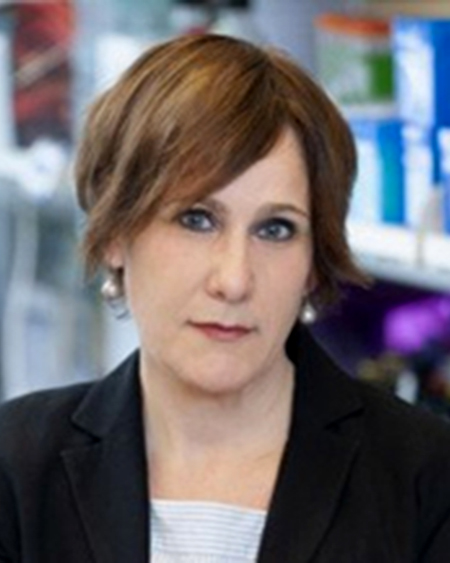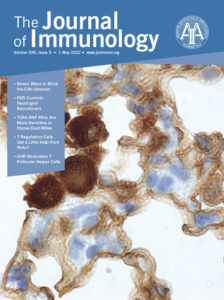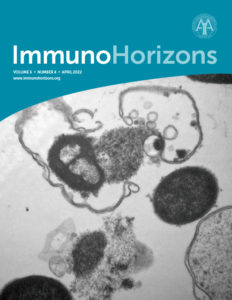Andrea Schietinger
Mem. Sloan Kettering Cancer Ctr.

Andrea Schietinger, Ph.D. (AAI ’14), an associate professor at the Memorial Sloan Kettering Cancer Center (MSKCC), is the recipient of the 2022 AAI-BD Biosciences Investigator Award in recognition of her outstanding research contributions in the area of tumor immunology.
Dr. Schietinger began her investigations of anti- tumor immune responses as a graduate student at the University of Chicago, where she showed that a tumor-specific monoclonal antibody recognized a wild-type surface protein whose glycosylation had been altered as the result of a mutation in a chaperone for a glycosyltransferase. Her findings revealed the role of altered posttranslational modifications as a novel mechanism for the formation of unique tumor neoantigens from wild-type proteins. During her postdoctoral fellowship in the laboratory of Dr. Philip Greenberg, DFAAI (AAI ’82), at the University of Washington and Fred Hutchinson Cancer Center, Schietinger continued her research focus on immune responses to cancer. She demonstrated that cell-intrinsic epigenetically encoded memory in self- and tumor-reactive T cells retains them in a tolerant state, thereby preventing autoimmunity but also anti-tumor immunity.
Since establishing her independent laboratory, Schietinger has made pivotal discoveries on how T cells recognize developing tumors. She showed that T cells become hyporesponsive to cancer cells during the pre-cancerous phase of tumor development, earlier than many investigators thought. She and her team further demonstrated that chronic antigen encounter and T cell receptor (TCR) stimulation induce epigenetically defined programs of cellular hyporesponsiveness in tumor-reactive T cells and that the nuclear factor TOX plays a key role in orchestrating the dysfunction. Schietinger also showed that the T cell dysfunction was dependent on the affinity of the TCR for tumor antigen. She recently has extended her work on T cell populations to settings of autoimmunity, revealing that an autoimmune stem-like CD8+ T cell population in pancreatic draining lymph nodes gives rise to autoimmune effector T cells and drives type 1 diabetes in non-obese diabetic mice.
Alexander Y. Rudensky, Ph.D. (AAI ’94), professor and chair, HHMI, MSKCC, Rockefeller University and Cornell University, says, “Given her exceptional ability to conduct research that embodies challenge, innovation, and impact, I am certain that Andrea will continue to break new grounds and advance our fundamental understanding of the molecular and epigenetic programs driving T cell dysfunction and its therapeutic reprogrammability. Andrea is a truly exceptional young immunologist.”
Schietinger received her Ph.D. in biological sciences through a joint program of the University of Chicago and the Ludwig Maximilian University of Munich, Germany. Following a postdoctoral fellowship and instructor appointment at the University of Washington, she joined the faculty of MSKCC as an assistant member in 2015. She also served as a faculty member of the Sloan Kettering Graduate School of Biomedical Sciences and as an assistant professor of immunology and microbial pathogenesis at Weill Cornell Medical College. She was promoted to associate member in the MSKCC immunology program in 2020.
Schietinger has been honored with the National Institutes of Health Director’s New Innovator Award, the Lloyd J. Old STAR (Scientists TAking Risks) Award from the Cancer Research Institute, the Pershing Square Sohn Prize for Young Investigators in Cancer Research, and the AACR (American Association for Cancer Research)- Bristol Myers Squibb Midcareer Female Investigator Grant. She is a frequently invited speaker at academic institutions and conferences in the United States and abroad, including AACR annual meetings, Federation of American Societies of Experimental Biology Science Research Conferences, Keystone Symposia, the European Academy of Tumor Immunology and INSERM Immuno-Oncology Meeting, the World Immune Regulation Meeting, and the AAI annual meeting.



